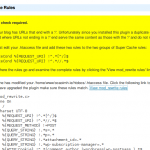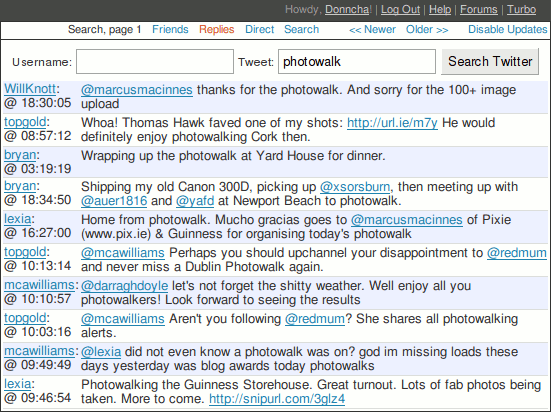WP Super Cache version 0.8.3 is now available. WP Super Cache is a page caching plugin for WordPress that will significantly speed up your website.
Double Caching
This releases fixes a long standing compression bug. In older versions of the plugin, the cached page was compressed twice. Once to display to the current visitor, and once again for the cached files stored on the server. This has now been fixed and there’s a noticeable speed increase for anonymous visitors. Unfortunately as a side effect, it’s not possible to display the “super cache gz” html comment now. To verify that html pages are being served from the supercache directory you’ll have to add an error_log() somewhere and check that visits aren’t logged.
The plugin now uses fopen() instead of gzopen() which according to a comment on the gzopen() manual page is unreliable under high load.
IE7 Fixes
Apparently IE7 has problems when gzipped files are served as “x-gzip” files, under certain circumstances. This is an obscure bug but this has been fixed. If you’re upgrading, either remove wp-content/cache/.htaccess and visit the admin page and that file will be regenerated, or edit that file and change “x-gzip” to “gzip”.
A number of smaller bugs were also fixed. Check the changelog for further info.




